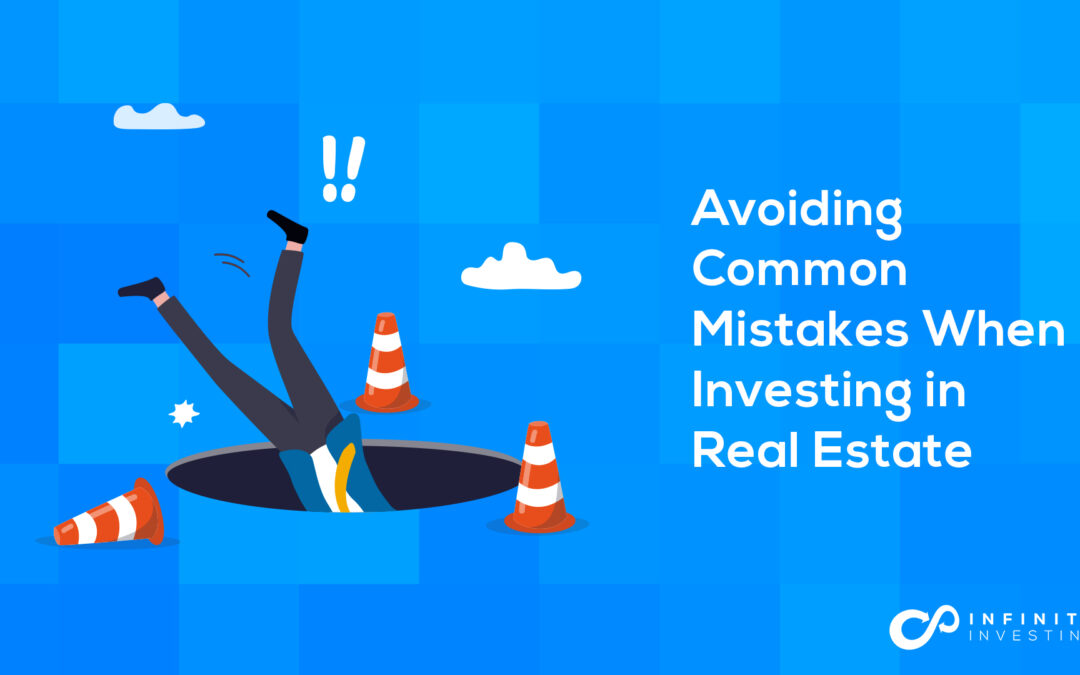
What Is Real Estate Investment?
Real estate investment is when you invest in property that isn’t your main home and generate income with it. It’s common for investors to own more than one estate. For example, investors may have three estates in which they invest. One might be their primary residence, and the other two properties may be rentals. The rentals earn the investors an income through price appreciation. This is when real estate increases in value over time, like buying a home for $349,900 and selling it later for $400,000. Interest, supply and demand, and location are all price appreciation elements.
Investing in real estate can help you build financial wealth, diversify your investment portfolio, and create a secondary income source. The two different areas of real estate investing are residential and commercial. Often, residential real estate means purchasing land and properties, either single-family or multifamily investments, and you can rent them out or live in them. Commercial real estate can mean owning a business, retail store, or office building. Commercial real estate can be more expensive and have longer leases than investing in residential estates.
Common Mistakes to Avoid
There are many common mistakes to avoid if you want to optimize your investment strategy. Make sure you’re thinking about all your options, doing your research, and building a trusted network of professional experts who can answer your questions before you make a real estate investment move.
Key Takeaways
- Learn about the real estate market, especially local markets.
- Make a financial plan and budget.
- Speak with trusted sources to help guide you throughout your journey rather than doing it alone.
- Think about the future and how much you may earn on your investment.
- Maintain patience instead of jumping on the first property you see.
Infinity Investing Featured Event
In this FREE event you’ll discover how the top 1% use little-known “compounders” to grow & protect their reserves. Our Infinity team of experts show you how to be the best possible steward of your finances and how to make your money and investments work for you instead of you working for them. Regardless of your financial situation today, you’ll have a road map to get to where you want to be.
Mistake #1: Not Doing Your Homework
A common mistake you might make is not doing enough homework. Investing in real estate goes beyond finding an appealing property and purchasing it. There are several factors to consider, such as researching the current real estate market and the properties, catering to the wants and needs of most renters, obtaining a mortgage, and understanding the local laws and regulations for owning rental property.
Researching the Market and Property
One way you avoid this common mistake is to research the market and property. When considering buying a property, treat it like purchasing other products, like a car or smartphone. Compare several homes to each other, ask real estate agents, investors, and lenders many questions, and consider which properties are worth your money. Be sure to learn about the real estate market, how it’s currently performing, and how professionals are predicting it to be in a few months or years from now.
Some other aspects to consider during your research include:
- Review deeds and appraisal reports.
- Think about monthly maintenance costs.
- Research lower interest rates with good terms.
- Consider the tax benefits.
Understanding the Local Laws and Regulations
While it’s necessary to research the market and property, it’s just as crucial to understanding the local laws and regulations. Make sure you’re adhering to real estate compliance, property regulations, and rules. So, if you purchase a home, you must keep the building’s structure in code for the city and state where it’s located. Make sure you’re staying up to date and doing your due diligence by learning about the ever-changing local laws and regulations to ensure the property is safe.
Mistake #2: Not Having Enough Money
Having insufficient bank funds is another common real estate investment mistake. It’s vital to create a financial plan before purchasing a property. This includes knowing the amount of cash you have available to you and how much you’re willing to invest. Additionally, speak with multiple professionals, like mortgage lenders and real estate agents, to help with budgeting. Speaking with numerous people can help you find the best deals and low-interest rates.
Calculating Expenses and Having a Cash Reserve
Before investing in real estate, calculate the potential expenses and ensure you have a cash reserve, or a sum of money you keep saved in case of an emergency. When investing in real estate, having a large cash reserve may allow you to make a purchase quickly. It can also allow you to pay for any unforeseeable payments comfortably.
Calculating expenses means figuring out your return on investment. It also means considering possible expenses, like your mortgage, property taxes, and insurance. To help you get a close estimate, consider making a list of monthly expenses to see if you can afford the investment property.
Finding Financing Options
With the right financing options, you’ll have a financing safety net that gives you peace of mind. You may be able to purchase real estate with cash, but many investors use a fixed-rate mortgage so that the interest rate on the mortgage stays the same for the life of the loan. This helps you avoid paying more on the loan if interest rates rise. However, other mortgage options allow you to get your investment quicker, such as adjustable-rate mortgages or interest-only mortgages. These options may sound appealing, but if the interest rates rise, you will pay more in interest.

Mistake #3: Not Hiring Professionals
You might think it will help you save money if you take on the investment market alone, but this may hurt you in the long run. Consider hiring professionals who understand the industry inside and out. Review and speak to various investors to find the best fit for you. These professionals can guide you through the investment process, regardless of market conditions.
Working With a Real Estate Agent and Lawyer
Work with a real estate agent and a lawyer. These professionals are experts in their field and know what they’re doing to guide you properly through the real estate investment process. A real estate agent can help you find the perfect properties, facilitate communications with sellers and lenders, and draft the paperwork. Lawyers can help review the agent’s paperwork. These professionals can also find any errors in titles and easements.
Understanding the Benefits of Professional Advice
When you understand the benefits of professional advice, you’re less likely to have investments come back to haunt you. Professional advice can help you ensure you’re taking the right steps, such as hiring an inspector to search for hidden or obvious damage and concerns in the home. Appraisers can also tell you if a home is worth investing in.
Mistake #4: Not Thinking Long Term
Another mistake you can make is thinking about the short-term rewards or consequences of real estate investment rather than the long-term implications. It’s important to create a plan for purchasing property, and it’s essential to understand a potential exit strategy. While it’s exciting to think about the potential income of an estate, creating a plan to unload a property without losing money is a crucial step in your endeavor.
Evaluating the Potential Resale Value
One of the first things you should do when looking at a property is to evaluate the potential resale value. It’s important to consider price appreciation if you’re hoping to sell your estate in a few years without losing money. To help evaluate your potential resale value, consider some of the following factors:
- The neighborhood.
- The local real estate market.
- The home’s upgrades and updates.
- The home size and usable space.
Planning for Long-term Maintenance
Make sure you’re planning for long-term maintenance. This plan can include taking care of household appliances when they break or require attention and, in this case, having a trusted handyman that you can call. You may also think about adding additions to the property eventually or remodeling it for upgrades and updates that align with the current trends tenants are looking for when renting a home.
Mistake #5: Not Being Patient
If you’ve been shopping for the right property for a long time, it can be tempting to jump the gun when you find something you like. But this can be a mistake that could cost you in the long run. It’s good to be patient until the right deal comes along.
Evaluating All Options
Be sure to evaluate all options, which makes seeking professional advice and having trusted experts you can speak to vital. Think about how you may benefit from investing in either residential or commercial properties, consider the different neighborhoods and locations of properties, and learn about the area you might purchase in, such as a college town or a quiet family-oriented suburb.
Avoiding Making a Quick Decision
It’s always best practice to avoid making a quick decision. Although the real estate market is fast-paced, it’s best to take your time rather than rush into something you’re not entirely confident about. Look at all your options and compare them while considering what’s best for you and your money.
Learn More About Investing
If you’re ready to learn more about investing, sign up for our Infinity Investing Workshop. Here, you can learn all about our income-generating secrets and how to level up your retirement account.
Infinity Investing Featured Event
In this FREE event you’ll discover how the top 1% use little-known “compounders” to grow & protect their reserves. Our Infinity team of experts show you how to be the best possible steward of your finances and how to make your money and investments work for you instead of you working for them. Regardless of your financial situation today, you’ll have a road map to get to where you want to be.

